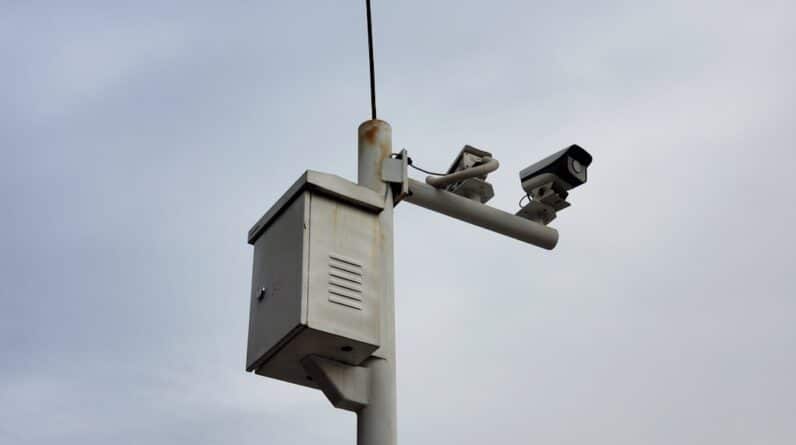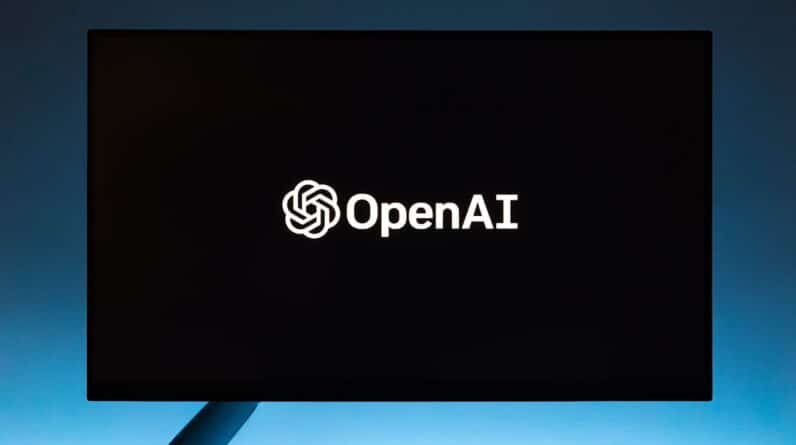As you navigate through your daily life, the presence of artificial intelligence (AI) has become increasingly pervasive, shaping not only your interactions but also the very fabric of society. The concept of an AI surveillance state refers to a system where advanced technologies are employed to monitor, analyze, and control the behavior of individuals and groups. This phenomenon is not merely a futuristic scenario; it is unfolding in real-time across various nations, where governments and corporations leverage AI to enhance security, streamline operations, and gather data.
The implications of this shift are profound, as they challenge traditional notions of privacy, freedom, and autonomy. In this new landscape, you may find yourself constantly observed, whether through facial recognition cameras in public spaces or algorithms that track your online activities. The integration of AI into surveillance systems raises critical questions about the balance between security and individual rights.
As you consider the ramifications of living in an AI surveillance state, it becomes essential to explore how these technologies impact your privacy, civil liberties, and the potential for abuse. Understanding these dynamics is crucial for navigating a world where your every move could be monitored and analyzed.
Key Takeaways
- The AI Surveillance State poses a significant threat to privacy and civil liberties.
- Government and corporate control in the AI Surveillance State raises concerns about abuse and discrimination.
- Resistance and opposition to the AI Surveillance State is crucial in safeguarding freedoms.
- The future of AI Surveillance has implications for the protection of human rights and civil liberties.
- Safeguarding freedoms in the age of AI Surveillance requires proactive measures to address potential abuses and discrimination.
The Impact of AI Surveillance on Privacy
Your privacy is one of the most significant casualties in the rise of AI surveillance. With the ability to collect vast amounts of data from various sources, including social media, mobile devices, and public records, AI systems can create detailed profiles of individuals. This data aggregation allows for unprecedented insights into your habits, preferences, and even your thoughts.
As you go about your daily routine, you may not realize that your actions are being recorded and analyzed, leading to a gradual erosion of your personal privacy. Moreover, the algorithms that power these surveillance systems often operate without transparency or accountability. You might find it unsettling to know that decisions affecting your life—such as job opportunities or law enforcement actions—can be influenced by data-driven insights derived from your online behavior.
The lack of control over how your information is used can create a sense of vulnerability, as you grapple with the reality that your private life is increasingly subject to scrutiny. This invasion of privacy not only affects your sense of security but also alters how you interact with the world around you.
The Threat to Civil Liberties and Human Rights
As you delve deeper into the implications of AI surveillance, it becomes evident that this technology poses a significant threat to civil liberties and human rights. The pervasive monitoring enabled by AI can lead to a chilling effect on free speech and dissent. When individuals know they are being watched, they may hesitate to express their opinions or engage in activism for fear of repercussions.
This self-censorship undermines the democratic principles that allow for open discourse and debate. Furthermore, the potential for discrimination within AI surveillance systems cannot be overlooked. Algorithms are often trained on historical data that may reflect societal biases, leading to outcomes that disproportionately affect marginalized communities.
As you consider the implications of this bias, it becomes clear that AI surveillance can perpetuate systemic inequalities rather than mitigate them. The risk of wrongful accusations or profiling based on flawed data can have devastating consequences for individuals and communities alike, raising urgent questions about justice and fairness in an increasingly automated world.
Government and Corporate Control in the AI Surveillance State
In an AI surveillance state, the lines between government oversight and corporate interests blur significantly. You may find it concerning that private companies often collaborate with government agencies to develop and deploy surveillance technologies. This partnership raises questions about accountability and transparency, as corporate entities prioritize profit over public welfare.
As a result, you might feel uneasy knowing that your personal data could be commodified and exploited without your consent. Moreover, the concentration of power in the hands of a few corporations can lead to monopolistic practices that stifle competition and innovation. As you navigate this landscape, it becomes crucial to recognize how corporate control over surveillance technologies can shape societal norms and values.
The potential for misuse of data by both governments and corporations creates an environment where your rights may be compromised in favor of profit margins or political agendas. This dynamic underscores the need for robust regulations that protect individual freedoms while ensuring accountability for those who wield such powerful tools.
The Potential for Abuse and Discrimination in AI Surveillance
The potential for abuse within AI surveillance systems is a pressing concern that affects you directly. With the ability to monitor individuals continuously, there is a risk that these technologies could be used for nefarious purposes, such as targeting political opponents or suppressing dissenting voices. You may feel alarmed by the prospect of a surveillance apparatus that operates without checks and balances, allowing those in power to manipulate information for their gain.
Discrimination is another critical issue associated with AI surveillance. As algorithms analyze data patterns, they may inadvertently reinforce existing biases present in society. For instance, if law enforcement agencies rely on predictive policing models that disproportionately target certain demographics based on historical crime data, you could witness an escalation in racial profiling and unjust treatment of marginalized communities.
This cycle of discrimination not only harms individuals but also erodes trust in institutions meant to protect your rights and freedoms.
Resistance and Opposition to the AI Surveillance State
Grassroots Movements for Change
Grassroots movements are mobilizing to raise awareness about the implications of AI monitoring and to demand reforms that prioritize individual rights over unchecked surveillance.
Legal Challenges and Empowerment
Moreover, legal challenges are being mounted against invasive surveillance practices, as individuals seek to reclaim their privacy rights in courtrooms around the world. As you engage with these movements, you may feel empowered by the collective efforts to push back against an encroaching surveillance state.
Shaping a Better Future
The dialogue surrounding AI surveillance is evolving, with calls for ethical guidelines and regulations gaining traction among policymakers and industry leaders alike. Your participation in these discussions can contribute to shaping a future where technology serves humanity rather than undermines it.
The Future of AI Surveillance and Its Implications
Looking ahead, the future of AI surveillance presents both opportunities and challenges that will undoubtedly impact your life. As technology continues to advance at an unprecedented pace, you may witness the development of more sophisticated surveillance tools capable of analyzing vast amounts of data in real-time. While these innovations could enhance security measures and improve public safety, they also raise ethical dilemmas regarding privacy and individual freedoms.
The implications of widespread AI surveillance extend beyond immediate concerns about privacy; they also touch upon broader societal values such as trust, autonomy, and democracy. As you contemplate the trajectory of this technology, it becomes essential to advocate for a future where ethical considerations guide its development and implementation. By fostering a culture of accountability and transparency within both government and corporate sectors, you can help ensure that advancements in AI serve to enhance human dignity rather than diminish it.
Safeguarding Freedoms in the Age of AI Surveillance
In conclusion, navigating the complexities of an AI surveillance state requires vigilance and active engagement from individuals like you. As technology continues to evolve, it is imperative to safeguard your freedoms against encroachments on privacy and civil liberties. By understanding the implications of AI surveillance on society, you can contribute to meaningful discussions about ethical practices and advocate for policies that prioritize individual rights.
The future is not predetermined; it is shaped by collective action and informed choices. As you reflect on the role of AI in surveillance, consider how you can participate in efforts to promote transparency, accountability, and justice within these systems. By standing up against potential abuses and advocating for equitable practices, you can help create a society where technology enhances rather than undermines your freedoms in an increasingly interconnected world.
In a related article on AI Lab 360, the discussion shifts to the socioeconomic impacts of artificial intelligence, exploring the balance between job creation and automation. The article delves into how AI technology is reshaping industries and the workforce, raising important questions about the future of work and the potential for job displacement. To learn more about this topic, you can read the article here.
FAQs
What is the AI Surveillance State?
The AI Surveillance State refers to the use of artificial intelligence technology to monitor and track individuals within a society. This can include the use of facial recognition, biometric data, and other advanced surveillance techniques.
How does the AI Surveillance State impact our freedoms?
The AI Surveillance State can impact our freedoms by infringing on privacy rights, freedom of speech, and freedom of movement. It can also lead to increased government control and potential abuse of power.
What are the potential risks of the AI Surveillance State?
Potential risks of the AI Surveillance State include mass surveillance, discrimination, and the erosion of civil liberties. There is also the risk of data breaches and misuse of personal information.
What are some examples of the AI Surveillance State in action?
Examples of the AI Surveillance State in action include the use of facial recognition technology in public spaces, the monitoring of online activities, and the collection of biometric data for identification purposes.
What are some potential solutions to address the threats posed by the AI Surveillance State?
Potential solutions to address the threats posed by the AI Surveillance State include implementing regulations on the use of AI technology for surveillance, increasing transparency and accountability, and advocating for privacy rights and data protection laws.






